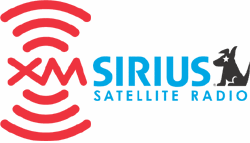The debate continues on the merger of XM (XMSR ) and Sirius (SIRI ) Satellite Radio as the case again comes before the Senate Committee on Commerce for round four since its original proposition in February. Opponents argue that the merger will create a monopoly, leaving a sole provider for satellite service to consumers. This, they argue, will lead to increased prices and decreased content. Advocates argue that the merger is necessary in order to compete against other technologies, including terrestrial radio, MP3 players, CD/DVD etc. The inference is that the battle between the two small companies for the limited audience is splitting the market and preventing its advance against the other technologies.

Here is an interesting fact: Much of satellite radio is automated and announcer free. Any guess which entity is one of the mergers staunchest opponents? The National Association of Broadcasters (NAB). A newly released a report, commissioned by the NAB, and, interestingly enough, released EXCLUSIVELY to the New York Post, owned by media mogul Rupert Murdoch, blasts the merger. According to the Post, "It concludes – in precisely the opposite terms that Sirius CEO Mel Karmazin has espoused – that approval of the deal will result "in less service, less affordability, less diversity and less choice in content and hardware."
Orbitcast, a satellite radio focused blog, irreverently states the case against the Carmel Report quite succinctly:
A key highlight of the study is the so-called "ping-pong chart" illustrating historically XM's and Sirius' competitive reactions to each other. The Carmel Group created a similar chart for the EchoStar-DirecTV merger, which they themselves cite as being a significant deciding factor for rejecting that merger (sadly the FCC says nothing of it).
The Post cites one example, where the chart notes that in December 2002, XM launched its first portable satellite radio, which they assume prompted Sirius to do the same just 5 months later. (You have to wonder what they consider the development cycles to be for receivers… I think a 5 month turn-around time from concept to production sounds reasonable – don't you?)
I'd like to see this ping-pong chart, because I'll make one just for terrestrial radio's reactions to satellite radio. Was HD Radio a reaction to Satellite? Nah! Was renaming your stations to "Free FM" a reaction? Absolutely not! How about those "Radio, you shouldn't have to pay for it" ads?
…oh, but let's forget about all that. I just want to highlight one specific thing about The Carmel Group report: It was sponsored by the NAB. 'nuff said. (thanks Orbitcast)
I asked David Neubert for his opinions on how the merger might affect the market. Here is his reply:
I'm not following this super closely. The SIRI I own is based on assuming no merger. Approved, good for both companies since they can stop competing for talent against each other. They can also raise prices perhaps, but maybe not too much since they are still competing with Free radio, CDs, and IPODs. It would be very good for stock prices.
No Merger seems more likely on competition grounds. I think the market expects that the merger won't happen. Stock prices won't be hurt that much.
No matter what happens a decision is better than no decision so that both companies can go back to working on the business instead of thinking about merger.
I agree with David on all points. These companies need a decision one way or another so that they can get back to the business at hand. Until a decision is made, their hands are tied when it comes to future strategies and planning.
The old adage rings true here: There are three sides to every story. Any topic can be debated pro or con. The fate of the action is now in the hands of the Congress. Personally, I think the merger should and will go through, but I also thought America should have stayed out of Iraq.
.